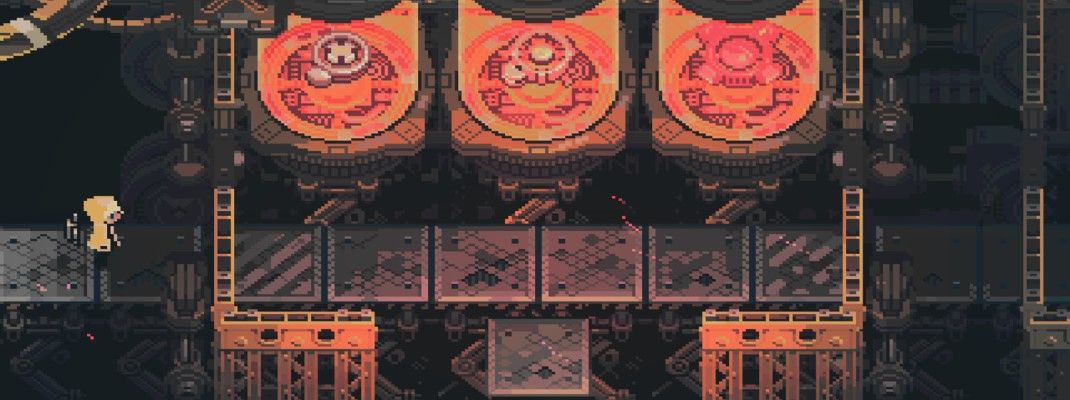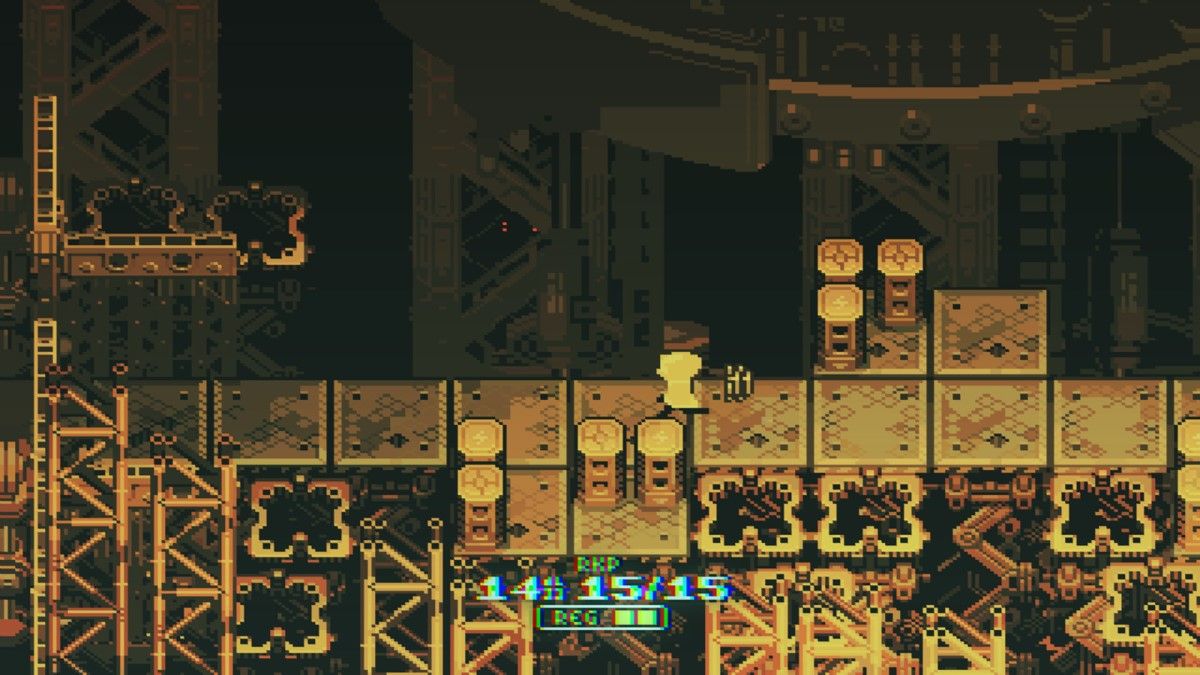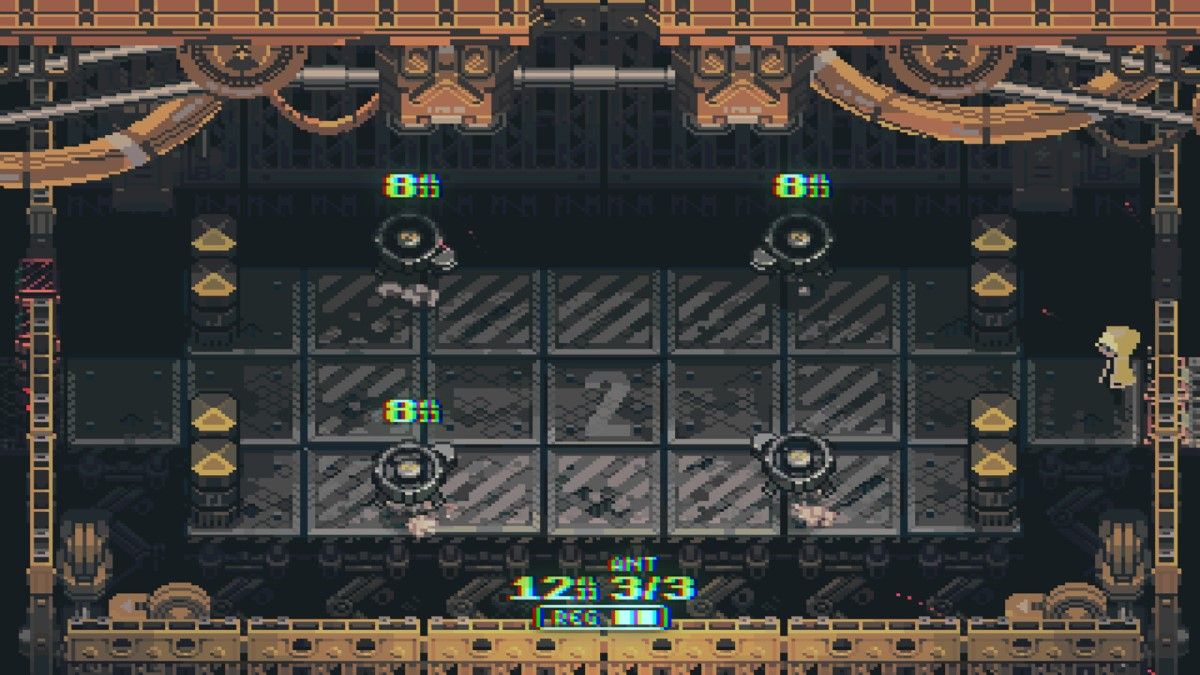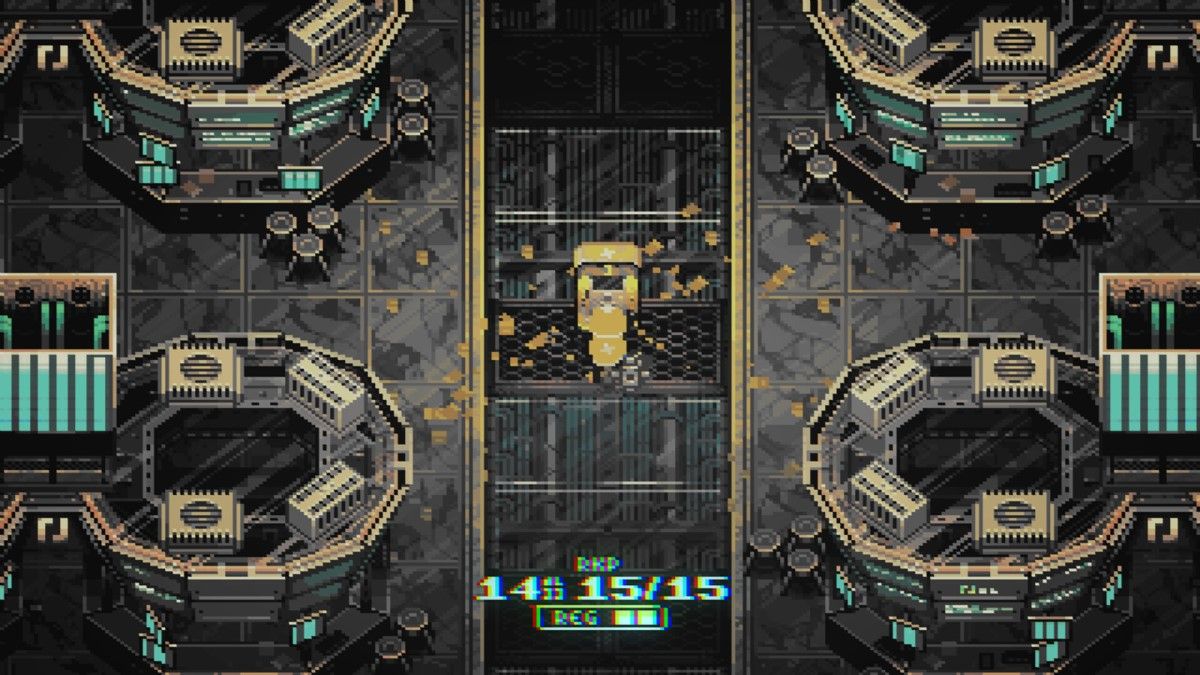Annoying it is when you finally give a game you should have followed more closely its eventual due attention, there's a silver lining. The kind of consolation that immediately follows the regret. Something which, personally, serves as one of the key reasons why all these years later, I'm still as dedicated and as committed to keeping tabs on the sphere of video game activity as far removed from the AAA space as you can get. Not to outright rule the latter out completely, but nine times out of ten it's the kind of game that may not have a big name backing or may well fly under many people's radars that has stayed with me. Everhood being the most recent example of this eventuality. A situation where something seemingly out of nowhere and beyond one's initial view has snuck up on you. Becoming your entire focus for a brief period and possibly more so later down the line.
Naturally, to say Radio the Universe has "snuck up" in a broad sense wouldn't entirely be true. For a game that has long been (achingly so for some) in development, any surprise of its reemergence would feel more like relief and some desperate plea to see some kind of probable release window in close proximity. Least one it would stick to and not find itself indefinitely delayed past as a result. For now, it's 2023 and the game has once more surfaced for a time; the opportunity to provide a vertical slice via the latest and recently-ended Steam Next Fest, perhaps developer 6E6E6E's prime opportunity to get it out to as many curious, prying eyes as possible. Perhaps it's that aforementioned drive to discover the next best thing, but having played through the demo's entirety twice over now -- and at the risk of making a bold claim here -- consider me a convert and Radio the Universe one of the most fascinatingly off-kilter vertical slices of a demo for some years. From initial boot-up to the closing request for player feedback, Radio the Universe had me hooked.
I won't deny that coming off the back of a game like Signalis, a longing for the next great example of oppressive, sci-fi mind-games and uneasy-yet-engaging world-building may be tainting -- albeit in a more positive manner -- one's priorities a smidgen. But even if that were the case, the qualities of Radio the Universe stem from more than it chosen tone and art-style. Alluring it may be, with its run-down, abandoned, seemingly-apocalyptic blend of cultist symbology, industrial grime and what one would describe as gothic architecture -- if the gothic aesthetic were some yet-to-be-conceived idea a few centuries from now. A color palette that denotes anything but vibrant, breezy or chock full of life, but in fact the complete opposite. Glazed over by a slightly off-focus aberration of clarity. A post-processing effect that immediately makes one suspicious of the game's intentions. Suspicious on whether or not I, the player, am indeed the viewer and the invisible hand alike that guides the lone, wandering, android-like protagonist...or someone/something else out of shot.
Because if one thing is consistent about Radio the Universe, it's the game's very inconsistency. A clarity on detail that is anything but. From its introductory menus and interface that at first seem poorly implemented, ill-fitting and devoid of attention, right down to the mess of digital noise that covers many of the computer monitors and interfaces you eventually interact and navigate on one's journey. The setting a clutter of robotic husks, cargo containers and a general environment that feels immaculately preserved and horribly run down at the same time. An unsettling locale and one that's hard not to delve deeper and deeper into. Even in the case of sound design the game has those bases covered. In any other scenario, the somewhat-comical sound you hear as you hurtle down a vertical shaft or find your character's legs make a kind of coiled, spring-like jolt as you leap a few rungs up a ladder, should feel disconnecting. Off-putting even -- betraying what tension and feeling of unease the setting is clearly going for.
Yet it works and that's why Radio the Universe is as fascinating as it is. That the game is going all-in on that bizarre semblance of uncertainty, even if at the risk of its own artistic endeavor. A build-up and eventual unraveling that hallmarks any great psychological horror. The kind of horror that doesn't bother with the grotesque or the material, but rather the immaterial, the abstract. The fear you architect out of some desperate plea for all this to gravitate toward some manner of a logical throughline. Perhaps where, more than likely, there is none. So much of Radio the Universe conjures this feeling of confusion, of irregular motifs and unsound reasons for what's going on. Why does your character spawn in (moments after a prior death) from a splattered pool of black goo? Why, by comparison, do hostile foes unleash a similar splatter upon their own destruction and why is it that color? What's with the idea that you upgrade one's abilities at a phone-box of all things? And after you beat the demo's end boss and continue on your way, your prior abilities are replaced by a crackling, glitched interface whose own insignificant presence gives me even more unease?
All this, without even beginning to tap into the more combat-centric parts of Radio the Universe. A system of attack-and-dodge maneuvers whose enemy health bars (or in this case, health numbers) are clear to see, but whose mannerisms are less so. An early sub-boss that fires off chains it uses to swing from wall to wall, delivers on the kind of encounter that just about avoids slipping into cumbersome, but whose fine-line design is emblematic of the game's wider philosophy. That philosophy being that combat isn't so much something you're wanting to partake in, but something you've got no say over. You fight because you have to, not because you want to -- these "machines" are going haywire and with it comes the inevitable conclusion: it's kill or be killed.
In fact, I shouldn't even be paying as much attention to something, again, as meaningless and as short-term as a machine's beeping -- an audible cue to tell you it's about to fire a projectile -- but all these minute details add up to this grander, sweeping, all-consuming layer of discomfort that brilliantly punctuates Radio the Universe. Sparse as its soundtrack may be with its dark ambient leanings, the best moments come when the game at one point or another drops the charade and actually imposes its own identity onto you. Then come the 16-bit era influences -- the kind of scene-setting ambiance that immediately made me think of something like the early dungeon theme from A Link to the Past. Something with a melody or an eventual hook, but one which reveals itself as opposed to immediately greeting you from the off.
But sometimes this is what a great, well-realized vision and attention to detail will herald. The kind of game -- not even a game, but a vertical slice of said game -- whose mere sky-boxes and littering of 16-bit sprites evoke a desire to know more. To get answers to questions that are only mounting up the further one descends into this game's would-be techno-gothic-industrial nightmare. To say Radio the Universe is worthy of a closer look on its visuals alone would be to downplay the most crucial element developer 6E6E6E undoubtedly nails with surprising accuracy: that feeling of uncertainty and distrust. Uncertainty not just with what the game isn't telling you about its premise and presentation alike, but more so, the uncertainty of whether or not the game is even hiding further truths to uncover. That this isn't all just one's imagination and presumptions running amok. Indeed, Radio the Universe may well have already gotten inside my head, but that audio-visual meddling and unease that something isn't right is precisely the reason why its demo is as special and easily-recommended to try out as it is.




